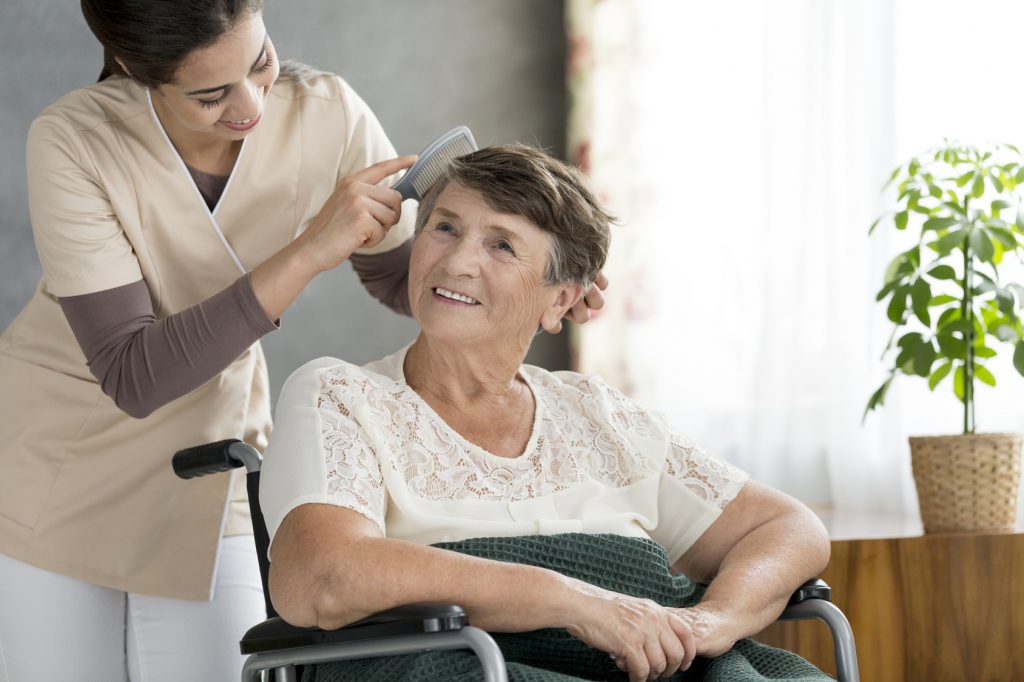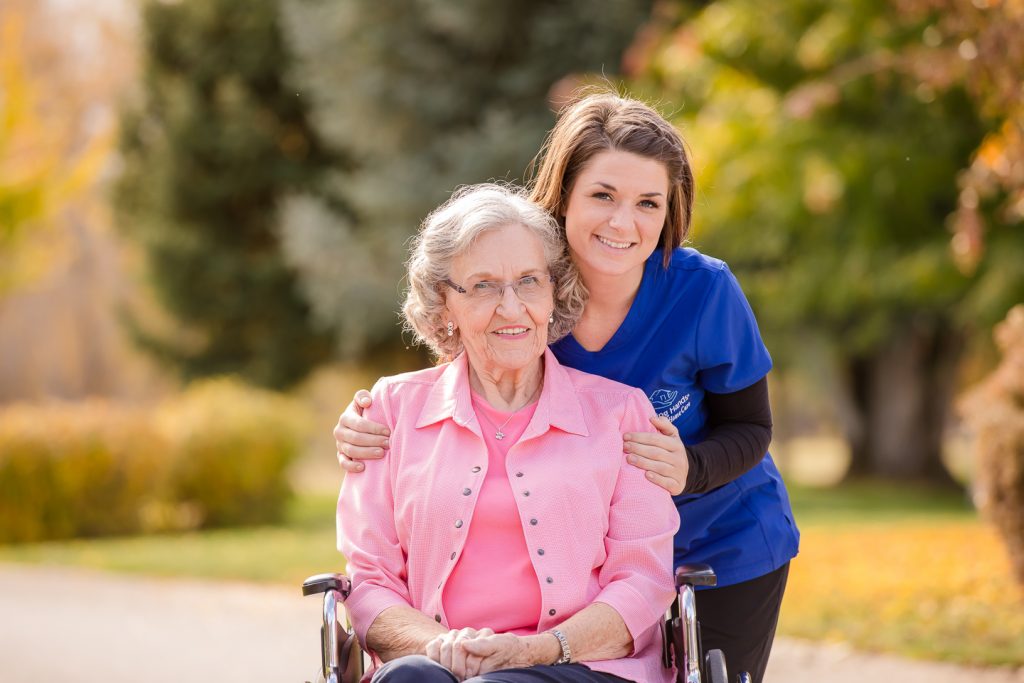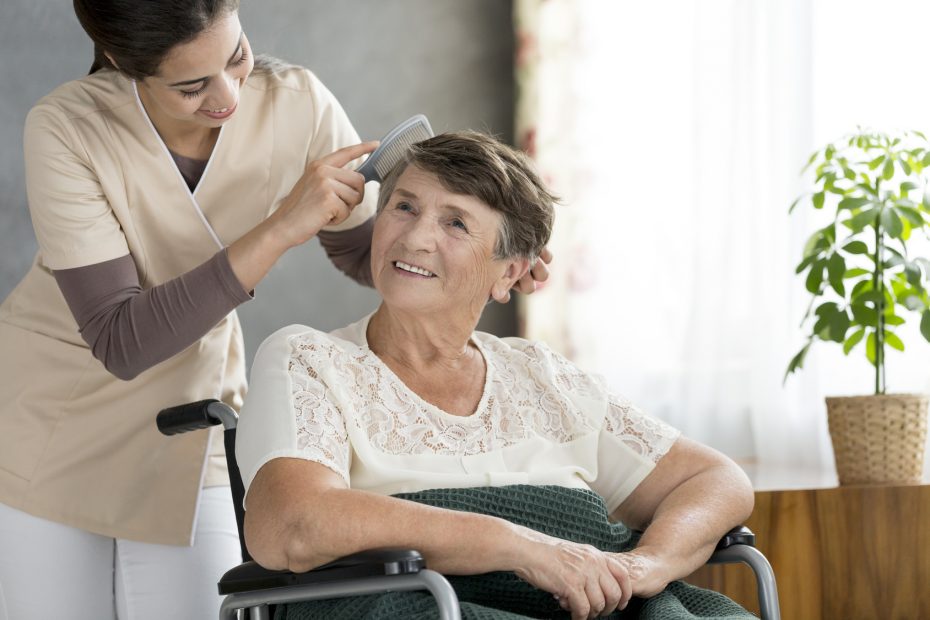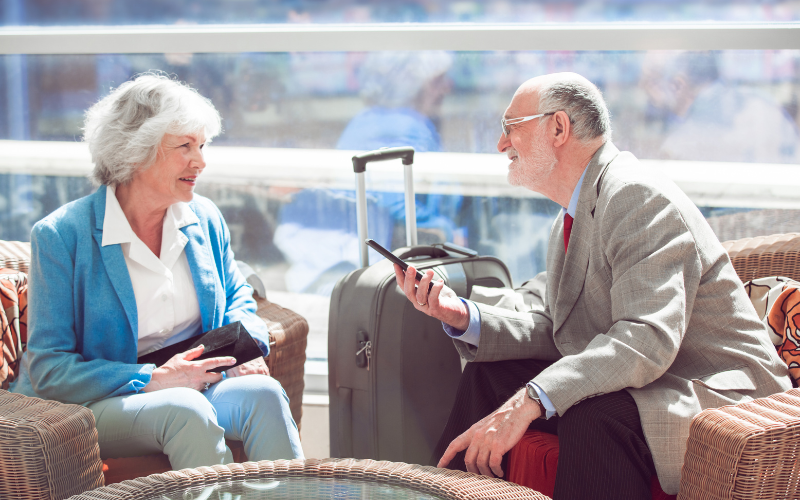
The aging process has a direct impact on the skin, and the elderly must pay more attention to their hair and scalp. Common scalp conditions that affect seniors can cause itching and irritation. When scalp issues arise, caregivers are urged to respond with appropriate solutions to preserve the senior’s comfort.
Usually, scalp issues are not caused by serious illness. However, some scalp problems, like dandruff or itching, maybe a source of embarrassment or discomfort. Even though scalp issues can be upsetting, the elderly have no need for concern; many people experience scalp problems.
Issue #1: Hair Loss
As people age, hair naturally thins. Hair loss or breakage is a common complaint among seniors. While most people lose 50 to 100 hairs a day, not everyone is affected equally. Some people may lose less hair, and others lose more. Heredity is a contributing factor to hair loss.
Hair loss may be experienced for a number of additional reasons. Elderly women and men may suffer hair loss due to disorders of the endocrine or thyroid. Reduced hormonal support plays a role, too. Seniors who consume inefficient nutrients may lose hair, as an unwanted result.
Seniors who once had thick hair may now have a head full of thin, silver strands. Pigment changes affect hair during the aging process. Growing older prevents the pigment cells from producing as much pigment. As a natural consequence, the hair grows finer, thinner, and grayer.
Older people who are keen about their gray hairs may visit a stylist for coloring. Unfortunately, hair care products, like dyes and permanents, often damage the hair. Excessive hair breakage or thinning is an unavoidable outcome of frequently using hot rollers or curling irons.
Issue #2: Dandruff
The skin on the scalp may itch or flake, and such discomforts may be caused by dandruff. Dandruff is a condition caused by the shedding of skin on the scalp. This shedding is responsible for the white flakes scattered on an individual’s head, neck, and shoulders.
The exact cause of dandruff is unknown, but medical experts believe the flakes may be caused by a fungal infection or eczema. Seasonal and hormonal changes can worsen dandruff. Dandruff, however, is not contagious. Dandruff may be controlled by washing hair with a medicated shampoo.
Issue #3: Seborrheic Dermatitis
When a case of dandruff is severe, it may be attributed to seborrheic dermatitis. In serious cases, seborrheic dermatitis can lead to the reddening of the scalp and excessive oil. Symptoms of the condition may also include reddish scales between the eyebrows and nose.
Elderly people are more vulnerable to developing seborrheic dermatitis because of advancing age. In the elderly, the immune system naturally weakens. The aging body is more limited in its ability to prevent fungal growth from affecting the scalp. Inflammation may occur, leading to shedding of the scalp.
Seborrheic dermatitis is a chronic condition. However, seniors may control the condition by using special shampoos two to three times per week. Older adults are advised to rotate between using a corticosteroid shampoo, an antifungal shampoo and a shampoo containing salicylic acid.
Issue #4: Shingles of the Scalp
Viral infections can cause sores or blisters along the aging scalp. Shingles, for example, may be the culprit, in some cases. Appearing as a painful skin rash, shingles develops from the virus that causes chickenpox. Shingles may appear later in life in individuals who contracted chickenpox early on.
A shingles infection most commonly affects adults over the age of 50. When shingles develops on the aging person’s scalp, a number of symptoms will appear. Headache and weakness in areas where the infection occurs will manifest. Shingles infections last approximately three to five weeks.
Treatments for shingles on the scalp include antiviral medications prescribed by a physician. Seniors who develop shingles on the scalp may experience sensitivity when brushing hair. Careful brushing is critical to preventing scars, rashes, and the resulting, permanent bald spots.
Issue #5: Scalp Psoriasis
Red, scaly patches develop in individuals with scalp psoriasis. In some cases, the condition can affect the entire scalp. Symptoms may be mild or lengthy and severe. Moderate psoriasis symptoms of the scalp include dry scalp, itching, dandruff-like flaking, and hair loss.
Medicated shampoos, ointments, and oils are among the first lines of defense in combating psoriasis of the scalp. Treatments must be applied directly to the scalp (rather than the hair) in order to be effective. While scalp psoriasis has no cure, a treatment regimen controls flareups and symptoms.
Hair and scalp are directly linked. Any conditions that affect the scalp will be visible in the hair. Aging healthily includes taking care of the scalp. Seniors are encouraged to limit heat to the scalp, such as when blow drying the roots, and use hair products infused with zinc actives.
Hair thinning, scalp itchiness, and other discomforts can be prevented by pampering the scalp with as much dedication as caring for facial skin. Seniors receive help with daily grooming, bathing, dressing, and all other personal hygiene routines from the caregiving professionals at Assisting Hands Home Care.

Call Assisting Hands Home Care for Your Loved One
As a reputable home care agency that continues to reliably serve local elderly populations, Assisting Hands Home Care will fully support the elderly loved one in your life. We offer a wide range of comprehensive, non-medical home care services designed to uplift seniors and ensure their physical well-being.
Aside from our daily responsibilities of meal preparation, light housekeeping, and providing transportation, our supportive caregivers are skilled in serving as companions. Seniors are never without a companion caregiver with whom to solve puzzles, play card games, or engage in friendly conversation.
Ensure the overall physical and emotional well-being of your elderly loved one by opting for senior care from Assisting Hands Home Care. Our compassionate caregivers are privileged to serve the elderly living in Palos Heights and the surrounding areas.
Call us at (773) 207-3767 for a complimentary in-home consultation to start quality home care.
















